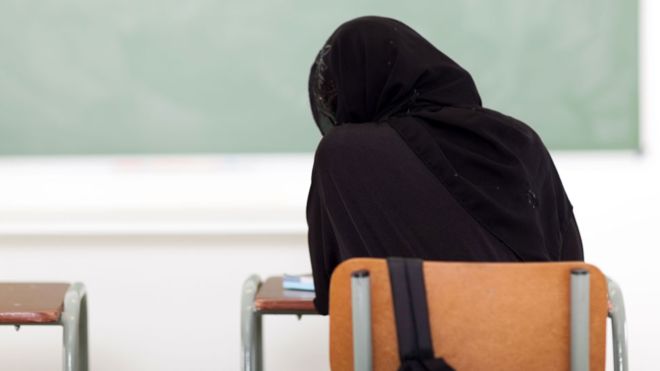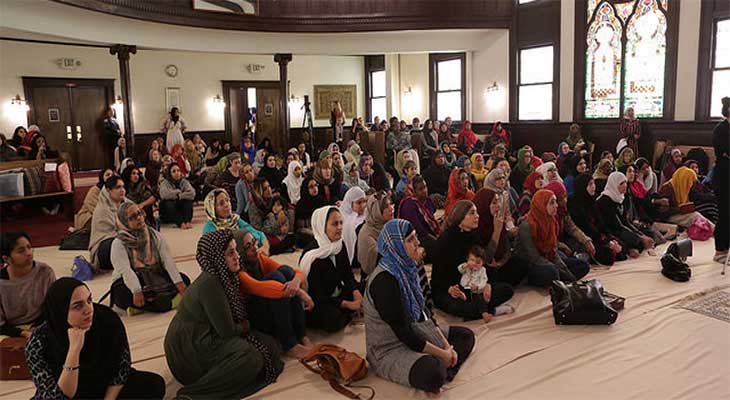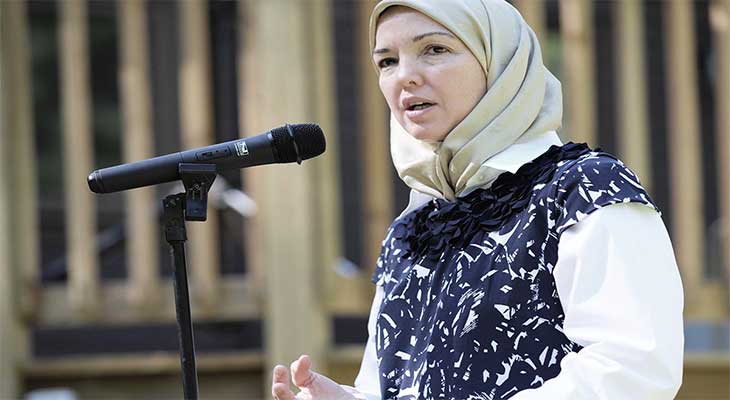- he was a prophet and
- he was also Head of State.
Purdah is an Indian word which is sometimes translated as “seclusion”. It refers to the practice of some Muslim women of staying at home so as to avoid mixing with men, other than the husband, family members and close friends. The practice is traced to a verse of the Qur’an which is directed specifically to the Prophet’s wives: “O wives of the Prophet! You are not like any of the (other) women: If you do fear (Allah) be not too complaisant in speech, lest one in whose heart is a disease should be moved with desire: but speak in a way (that is) just. And stay quietly in your houses, and make not a dazzling display, like that of the former Times of ignorance…” (Qur’an 33:32-33) The wives of the Prophet were in a unique situation: since




